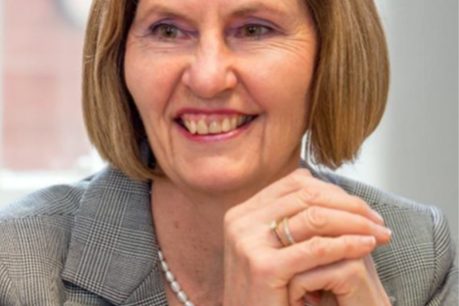The Australian College of Nursing talks to Trisha Dunning FACN (DLF), Chair in Nursing and Director Centre for Quality and Patient Safety Research Barwon Health Partnership, Deakin University, Geelong.
Trisha’s prime role is research and like everything else, it too has been impacted by COVID-19. “This includes research grants and recruiting participants, especially in aged care settings,” Trisha explains.
“Part of my role is higher degree supervision, which has also been affected. I am a credentialed diabetes educator and my research program concerns older people with diabetes and diabetes palliative and end of life care. I have developed guidelines for managing older people with diabetes, and also guidelines for deciding palliative and end of life care with people with diabetes. These are codeveloped with people with diabetes, family members and relevant experts. COVID-19 makes such collaboration challenging because resources are used elsewhere, as they need to be.”
Trisha was diagnosed with cancer in May last year and was on sick leave until February this year. At the moment, she is strictly isolating because she is in the high-risk category – older and with lowered immunity. “I returned to work part time initially and three weeks later COVID-19 and the isolation and social distancing changed the way we work, and I am now working from home full time.”
She adds, “I’m part of the workforce now, but last year was challenging and I was not physically or mentally able to work at my usual capacity. I found it challenging but I continued to support my higher degree students and write papers, even though I was on sick leave.”
Trisha’s way of coping was to see the experience as a learning opportunity, she says. “I had to learn to ‘be the patient – a health professional patient’!” Another new thing she learnt, says Trisha, was “to tie a headscarf!”
She delivers a professorial lecture every year on World Diabetes Day in November. One of her goals was to do that in 2019. “The lecture was recorded. It was not an ‘academic’ lecture in the formal sense of the word but the story of my journey and the key learnings that could be applied to practice.”
Overall, being a positive person has helped Trisha maintain her physical and mental wellbeing through this time. “I meditate, exercise within my strength and capability, spend time in my garden wandering with our beloved Westie, Flora Weadora, eat healthy food and stay isolated. I have significant support from my husband, and I stay connected to colleagues, family and friends through texts, phone calls and emails.”
“I read a lot, usually good quality historical fiction and poetry. I indulge in creative writing, mostly flash fiction and short stories with some poetry and Haiku thrown in.”
Every person has a different way of coping, says Trisha. “Change is always challenging. The Chinese character for change encompasses threat and opportunity. It is hard sometimes but seeing the opportunities, staying positive, having support and managing physical, mental and spiritual health are important to coping.”
She adds that it’s vital to seek help early if one is facing issues and is having trouble coping. “There are good days and bad days. Listen to your body and understand its messages,” she concludes.





